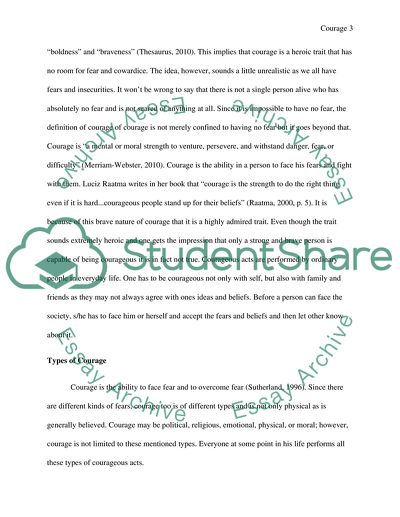Cite this document
(“Moral Courage Research Paper Example | Topics and Well Written Essays - 2500 words”, n.d.)
Moral Courage Research Paper Example | Topics and Well Written Essays - 2500 words. Retrieved from https://studentshare.org/social-science/1745455-courage
Moral Courage Research Paper Example | Topics and Well Written Essays - 2500 words. Retrieved from https://studentshare.org/social-science/1745455-courage
(Moral Courage Research Paper Example | Topics and Well Written Essays - 2500 Words)
Moral Courage Research Paper Example | Topics and Well Written Essays - 2500 Words. https://studentshare.org/social-science/1745455-courage.
Moral Courage Research Paper Example | Topics and Well Written Essays - 2500 Words. https://studentshare.org/social-science/1745455-courage.
“Moral Courage Research Paper Example | Topics and Well Written Essays - 2500 Words”, n.d. https://studentshare.org/social-science/1745455-courage.


